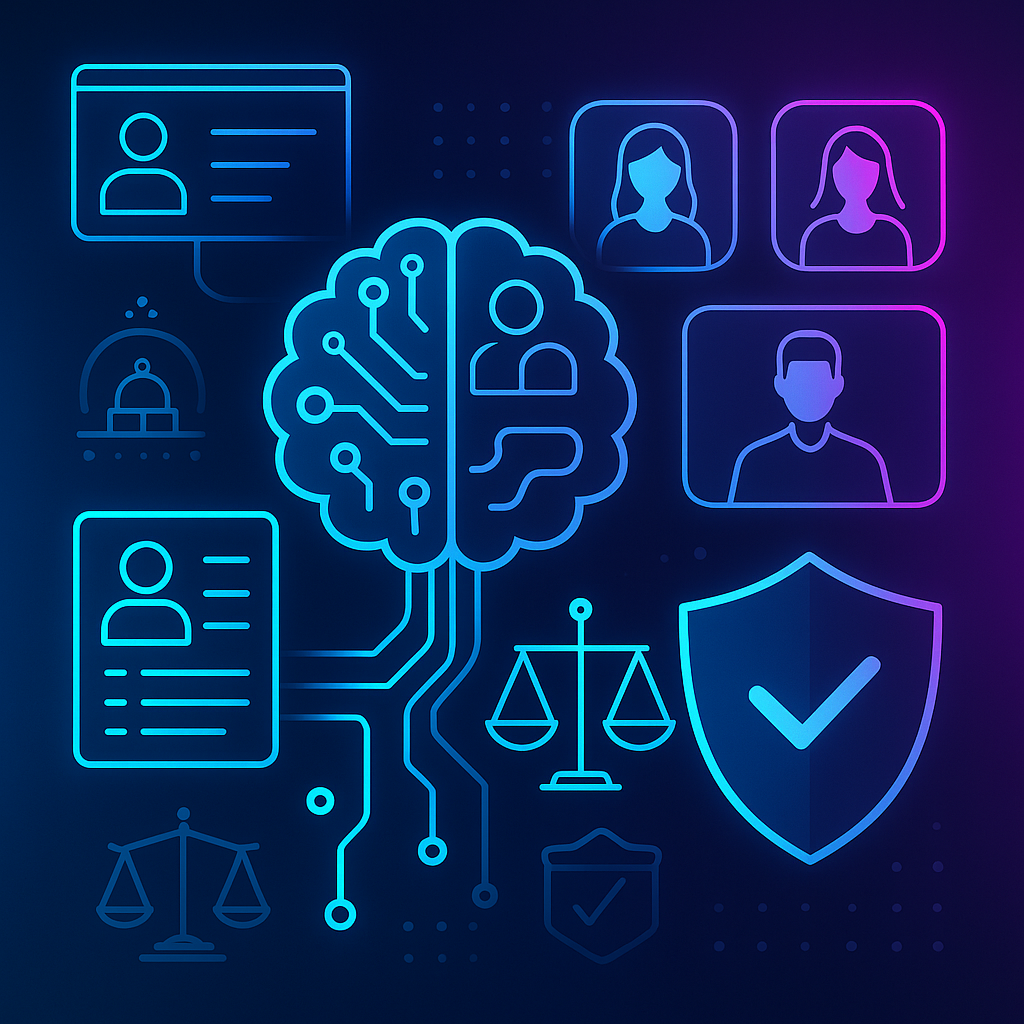How to accomodate candidates with ADHD during the hiring process

When it comes to the hiring process, recruiters know that identifying the need for new job openings, deciding on whether to hire externally or internally, reviewing and writing job descriptions, and sourcing from the right areas are just the beginning.
Another layer of responsibility recruiters have is adapting to candidates from all backgrounds, including neurodiverse. However, it may come with a few restrictions bearing legal and ethical limitations in mind.
Hiring the most qualified, diverse, and best-fit candidates may come with a few differences along the way and neurodiverse candidates are no exception! So, what is neurodiversity, and how can you accommodate candidates with ADHD throughout the hiring process?
What is neurodiversity?
Before you can accommodate candidates and employees with neurodiverse attributes, understanding neurodiversity is the first step. Neurodiversity is defined as having a range of differences in individual brain function and behavioral traits, regarded as part of normal variation in the human population.
This can especially be used in the context of autism; however, attention deficit disorders can also be considered within the neurodiverse range. You may not notice a stark difference during the hiring process of those with neurodiverse attributes, as opposed to others, but being aware and offering the right tools in accommodating can create a more seamless and note-worthy recruiting process.
Challenges and legal limitations
Of course, hiring candidates, whether neurodiverse or otherwise, will come with legal ramifications to consider. Throughout the application process, candidates are asked questions regarding their experience, capabilities, veteran status, disabilities, and more. But what if a candidate comes with a set of characteristics that aren’t necessarily an obvious disability but require a different way of conducting interviews, work style, and collaborative efforts? Is it legal to ask candidates if they have limitations or divergent work styles that may not explicitly be stated in the application? And if so, how do you go about this?
As a recruiter, you cannot legally ask a candidate for their medical and psychiatric history. ADHD is a protected disability, according to the Americans with Disabilities Act. This means candidates may be eligible for work accommodations and protection from discrimination. However, there are a few exceptions. If the candidate asks for reasonable accommodations for a condition that is not obvious, you are legally inclined to ask for reasonable documentation about his or her disability.
Why it’s important to accommodate neurodiverse candidates during the hiring process?
Being unaware of the unique differences in your pool of candidates and using a one-size-fits-all glove for the sake of convenience in your recruiting approach, may hinder your recruiting efforts more than help. This could prolong the hiring process; making it more difficult to communicate for yourself and prospects, and even overwhelm candidates, causing a potential loss of interest in the role.
Suggested reading on inclusive hiring: Combatting Bias in Machine Learning Algorithms: For Recruiting
Recruiters and HR managers are the first line of contact for candidates in getting a glimpse of a company’s culture. Although it may not blatantly be stated in one’s daily recruiting task list, learning how to adapt and accommodate your candidates is one of the most important skills to cultivate. So how do you accommodate neurodiverse candidates with ADHD during the process?
How to accommodate candidates with ADHD
The innovation of scheduling and project management tools that have been launched in recent years have played a significant role in the hiring process. The good news is that digital tools can help with all of the tedious aspects of the recruiting process like communication, interview setting, sharing and signing legal documents, and much more.
Suggested resource on neurodiverse hiring: Neurodivergent talent: the new frontier in diversity hiring
When it comes to accommodating neurodiverse candidates with ADHD, digital scheduling tools give you a head start and your candidate a seamless onboarding experience without forgetting a few steps along the way. The bad news is, not all recruiters are taking advantage of these tools, or using the right tools throughout the process. Recruiting tools are your friend and a must-have if you want to accommodate your candidates in a more efficient way.
Ask and understand their limitations
In addition to incorporating the right tools to assist you in the hiring process, you should be asking questions and understanding your candidate’s limitations. How do they prefer to work? Are they more of a collaborative person, or are they more efficient when working alone in a quiet environment? Do they like to work with music? What gets them in the zone? Coffee? A good workout before work? Brainstorming sessions with co-workers? Getting a feel for a candidate’s work style, their stressors and motivators can help in accommodating them not just through the hiring process, but even after onboarding. This could be helpful information for other managers as they begin to work with neurodiverse new hires.
Explain the hiring process clearly
As a recruiter, you may already know the recruiting process, but does your candidate know? Of course, prospects will have questions along the way, but being clear in explaining the next steps required of them can be useful information. Though this may seem like an obvious step, it is quite often missed by recruiters. This can prevent a lot of mishaps, forgetfulness, and setbacks when the hiring steps are clearly explained and expected along the way. A checklist in writing on the next steps for your candidates creates a more seamless undertaking.
Offer diverse interview option
With the presence of COVID-19, video conferencing has now become the first and main option for interviewing candidates. Apps like Zoom, Google Meet, Microsoft Teams, and more have been game-changers in the way we communicate. The good news is this interview-style can assist many neurodiverse candidates because it allows them to be in control of their environment.
For some candidates, the process of driving to the location of the interview site, finding parking, check-in for a physical first interview, may be daunting and anxiety-inducing. Help your candidates by conducting a virtual interview first. This allows them to prepare, get a feel for the hiring managers, and connect with them in an environment they are in control of, before moving on to a second round if need be.
Provide additional resources
As a recruiter, you want to ensure your candidates excel in the roles you place them in. While aiding these candidates according to their wishes may be expected, providing additional resources can put them at an even greater advantage. Once expectations and accommodations have been discussed, you can offer a buddy system or workplace mentor to optimize work performance; send helpful reading materials in managing ADHD at work; provide referrals for counselors who specialize in helping adults with ADHD reach their career goals. Of course, these are all optional choices and up to the candidate or employee to decide. Nonetheless, as a recruiter, you should keep in mind that individuals with ADHD and other neurodiverse traits have many possibilities.
Conclusion
Recruiting is hard but rewarding work! Finding the best candidates can take up a lot of time and even the best fit for the role can come with a few unique challenges. Becoming more aware of these challenges, learning to adapt and accommodate, and utilizing the right recruiting tools will aid in conducting a more efficient hiring process for candidates.
Leoforce is designed to fit your recruiting needs, especially when it comes to finding diverse talent. Save time & automate your entire hiring process from emails to self-scheduling, with Leoforce Quantum. We make it easier by giving you diverse, quality candidates so you can focus on what matters.
Resources
- https://www.additudemag.com/adhd-law-americans-with-disabilities-act/
- https://www.spectrumnews.org/features/deep-dive/now-hiring-what-autistic-people-need-to-succeed-in-the-workplace/





